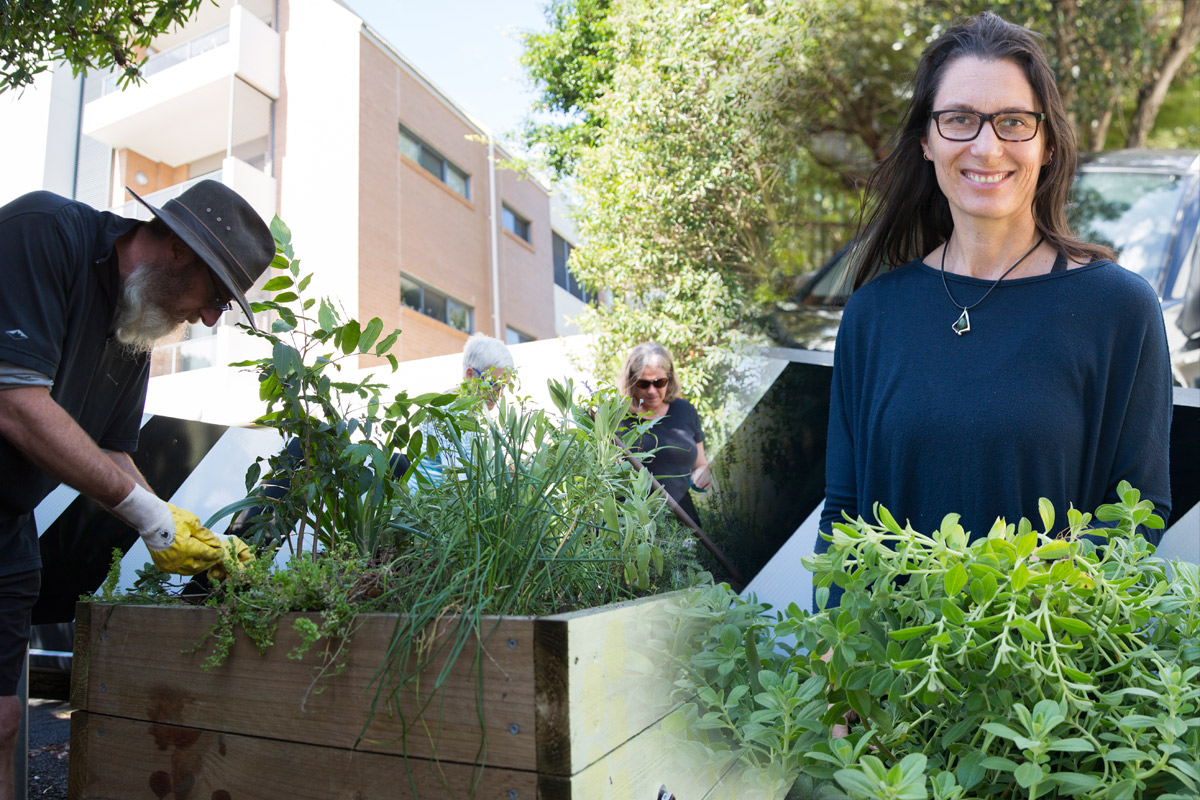Researcher Highlights
Sustainability, science, and systems
Doctor Bonnie McBain
Dr Bonnie McBain is advocating for a more holistic approach to examining change resistant issues, building community, and modeling solutions.

A sessional academic and Conjoint Fellow in UON’s School of Environmental and Life Sciences, Bonnie is at the international forefront of the emerging field of Sustainability Science. Bonnie’s work aims to build solutions that increase the resilience of communities and the natural environment they rely upon for their welfare.
With multidisciplinary environmental science based expertise in Ecological Footprints, climate change, surface water quality, catchment management, sustainable forest management, air quality, groundwater and fisheries management, Bonnie has become particularly interested in work that goes beyond traditional disciplinary boundaries.
Bonnie believes that the interconnected nature of the big issues we face as a society makes it dangerous to address them from only one perspective, or through the lens of a single discipline.
“Only through combining varied experience and knowledge can we reframe issues and find new solutions. We need to transcend traditional disciplinary constraints.”
A much-awarded educator, Bonnie coordinates and teaches four online courses annually, including a new non-disciplinary program she developed on Unraveling Complexity.
At the end of 2015, Bonnie was awarded a prestigious Vice-Chancellor's Sessional Staff Teaching Excellence Award. In 2016, it was an Australian Award for University Teaching Citation for Outstanding Contributions to Student Learning from the Office of Learning and Teaching.
MODELING OUTCOMES
Bonnie has received funding and a Fellowship from the ARC to lead research into our Ecological Footprint.
“It was the first time that anyone had modeled future global ecological footprints, specifically to inform policy development in Australia,” Bonnie says.
Using scenarios, Bonnie and her team were able to model different possibilities and outcomes, into the future up until 2070.
“We looked at the critical, underlying issues facing environmental policy in Australia, such as transport policy, renewable electricity, architecture, and urban design, and worked out ways to support policy makers to think differently about how they make decisions in highly uncertain times.”
A continuation of that collaboration has seen Bonnie most recently involved in research regarding the feasibility of a 100 per cent renewable energy sector in Australia.
“The evidence is growing,” says Bonnie. “There are now a number of studies in Australia that indicate that a hundred percent renewable energy with current technology is possible.”
TEACHING SKILLS NOT JUST CONTENT
Innovative student-led learning that empowers students to continue their own life-long learning is of great importance to Bonnie.
Together with colleague Liam Phelan, Bonnie recently co-led a project to develop learning standards for the field of environment and sustainability in collaboration with academics, employers, Aboriginal peoples, students and environmental educators from other sectors from all around Australia.
“We now have an understanding of the essential learning required of all students graduating from an environment and sustainability degree anywhere in Australia.”
In 2016 Bonnie was asked to develop and teach a new non disciplinary course on Unraveling Complexity.
“Because this is an emerging policy field, what our students are learning is actually exceeding the capacity of many in the industry sector.”
To better equip them for the challenges involved in facilitating major change, Bonnie challenges her students to reconsider the way they communicate information.
‘Communicating sustainability information is one of the most critical skills a sustainability scientist can have. We all need to learn how to do this better.’
The results created by her students are inspired and have included Pecha Kucha presentations, children’s stories, TED talks and YouTube videos.
“We need creative minds to become more sustainable. Thinking outside their own square is what we try to foster in our students.”
MANAGING DIFFERENCE
Bonnie admits that the mental paradigm shift necessary to unravel and amend big issues is a challenge for anyone.
“I think the underlying thing about sustainability, is not to tell people how to think about things,” Bonnie says.
“It is about opening up everyone’s ability to critically reflect on what's happening, but most importantly, it is about empowering people to take part in change.”
Bonnie argues that systems thinking is needed to understand and address the complex interrelated environmental, social, and economic components of any change resistant issue and what to do about it.
“I believe that to have any real impact on policy resistant issues, diverse transdisciplinary teams must work together, sharing different perspectives and broadening understandings.”
“Different groups of people will understand a problem differently. None of us has the whole picture or all the answers – solutions must be preceded by sharing different knowledge, listening and being open to new possibilities.”
“But to have a hope of addressing complex issues, you have to bring differences and conflicts together, and manage that constructively,” Bonnie reflects.
BUILDING CAPACITY
“I see my role as preparing information and developing skills to enable people to plan strategically to make their own safe future.”
Moving into the future, Bonnie is looking to further merge her research and teaching, with a focus on bottom-up change, by empowering community to increase participation in decision-making.
”When the community has the information, and community will is there, change can happen.”
Surely, the close examination of tipping points, unsustainable ecological footprints and short sighted policy must sometimes become overwhelming?
“Ever since I could remember I knew my dream job would involve ‘saving the planet’,” says Bonnie.
“In my work I feel a sense of hope, purpose and inspiration about what I do and the reason I do it. In many ways, I feel like we are currently in a very hopeful time. A more sustainable future is becoming economically, socially and environmentally desirable. We must take advantage of these windows of opportunity when they come.”
The University of Newcastle acknowledges the traditional custodians of the lands within our footprint areas: Awabakal, Darkinjung, Biripai, Worimi, Wonnarua, and Eora Nations. We also pay respect to the wisdom of our Elders past and present.
